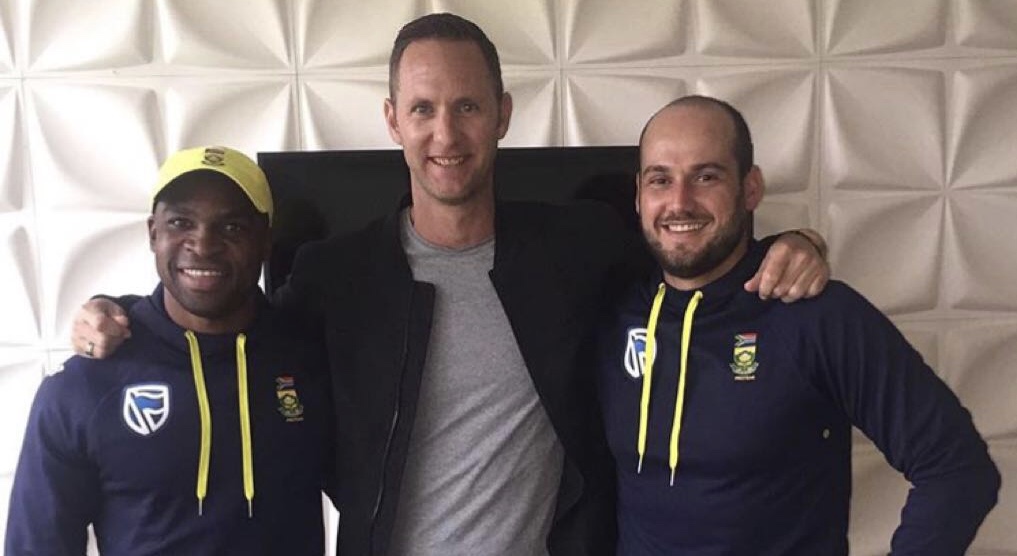We had a chat with former Dolphins player and current cricket agent Jon Kent to find out more about the role of a sports agent in South African cricket.
Prosport International is the largest sports agency in the Southern Hemisphere and we sat down with one of their cricket agents for an in-depth interview.
How did you become a cricket agent?
I’m a former player and this helped me to understand the player’s needs. I was approached about two years after I retired, by Mike Makaab, who is a well-known agent and CEO of Prosport International. Mike has a big following with regards to the football side of things and he is an amazing individual and very inspiring. He has been an incredible person to work for and I’ve learned a lot from him.
What is the main role of a cricket agent?
From the sound of it, it sounds like managing the football guys is a little bit harder than the cricket guys we like to think… we cricketers are a little bit more level-headed oakes! But, in all seriousness, the important aspect is the mentorship of the player. There are a lot of different decisions that they need to make at different stages of their career – at some stage, they may want to go to England, or they want to play in T20 leagues… and this can also be complicated if the player is a borderline South Africa A or Proteas player.
Communication is obviously a vital part of the job because I have to keep the player informed about all information regarding his career and various opportunities. Likewise, he has to be just as good in his communication in conveying to me what’s relevant as I will be negotiating on his behalf with sponsors and cricket stakeholders.
Some guys will try to sign anyone and everyone, but it’s nice to reach a point where you can cherry pick the guys you follow and who you think will become national players. You want to choose the right type of guys not just for the cricket but also because of their character, especially when you talk to the guys and get to know them. I would like to think that our crop of players are well-respected and very switched on guys.
How do you approach your recruitment process?
This is where the variation occurs in the sport. In rugby there are guys getting provincial contracts at 15 or 16 years of age – it’s such an early stage, it’s crazy. As a cricketer, the opportunity to get signed up at that early is slim, but you have to keep your eye on the guys at SA U19 level and even coming through the ranks at U17 level.
The word ‘agent’ doesn’t always have a great connotation to it and there are some agents who give us all a bad name, but I’m pretty professional and I make sure that I display good morals at all times. It is a tough industry and some players can be disloyal, but if the guy is a solid guy and the trust is there, then you can grow with him through his career and after.
Do you earn a percentage of their earnings?
There is a standard rate but of approximately seven-and-a-half percent, but don’t quote me on that. The maximum would be around 10%, but I don’t put players under pressure because I have to hit a certain number, and my players appreciate that because I don’t take advantage of them at every occasion, as that happens quite a bit out there.
How many players have you signed up?
We have 16 franchise players and there are a couple under the radar at a provincial level. We also have three coaches that we look after at present.
Some of our contract players are Junior Dala, Dwaine Pretorius, Christiaan Jonker, Sarel Erwee, Calvin Savage, Sisanda Magala, Dominique Hendricks, Zubayr Hamza, Janneman Malan, George Linde and Andries Gous.
How involved are you with sponsorship deals?
It happens from time to time if a player is looking for a change, as we have a connection with some cricketing brands. Most of the time the guys are willing to sort that out on their own, though, but if they need help I assist them with that process.
What are some of the challenges you have faced as an agent?
Contracting is generally the toughest time, especially with the moving landscape that has happened with the MOU. Usually, CSA have to approve contracts and then award national contracts around March, so from February to May you could negotiate contracts, but in the last couple of years, they pushed back that window so the negotiation timeframe has become severely compacted. It is stressful because they don’t really give us enough time to sort out these contracts, so at times it can be tricky if there is a disagreement and you have to get through it and find the player’s correct market value. It’s tough getting guys from the level of provincial cricketer up to a franchise level because there is a bit of legwork to do, but if the player has done as expected it certainly helps. If the player had a poor season, however, then we have to back him up and make sure he gets looked after.
How do you deal with the media?
I try to get some solid guys in terms of their character. Guys who think things through. A problem in all sport at the moment is that it is very easy to vent your frustrations on a social media platform, and the guys can get found out there and get disciplined quite harshly. As they operate in a team environment, no CEO or coach is going to stand for that. As much as sports guys love to be on social media, especially the younger generation, there needs to be a level of care taken in what they put out on the various platforms.
I’m always on all social media platforms and checking if the guys are looking after their sponsors, but I also keep an eye on everything and am always watching for any red flags, but I’m happy with how my players have handled themselves online.
Photo: Supplied







